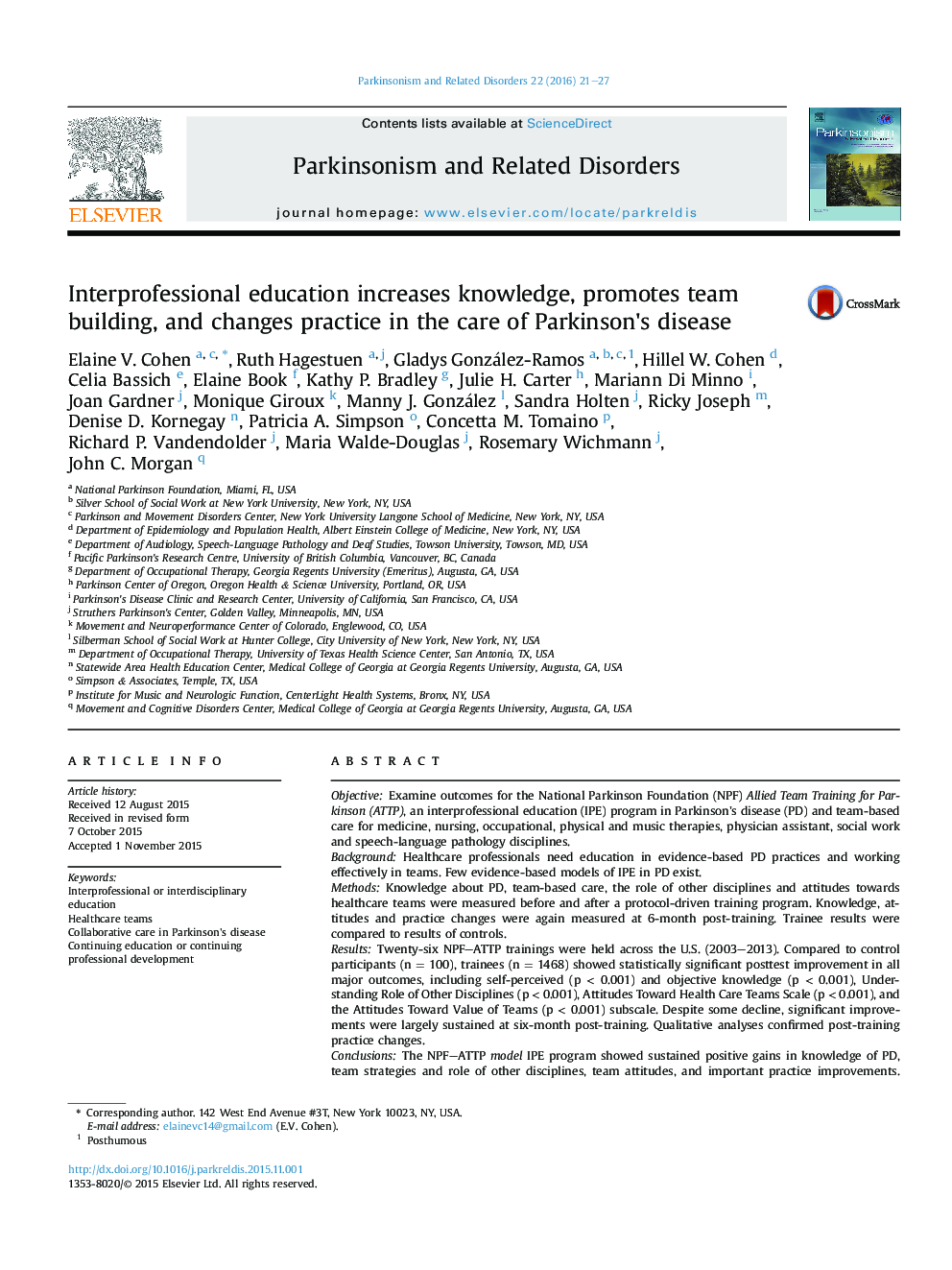| Article ID | Journal | Published Year | Pages | File Type |
|---|---|---|---|---|
| 1920459 | Parkinsonism & Related Disorders | 2016 | 7 Pages |
•Collaborative PD care education programs for healthcare professionals are needed.•We developed a model team-based interprofessional education program in PD.•We examined changes in knowledge of PD, team strategies and attitudes toward teams.•Major outcomes showed significant and sustained improvement.•Important practice changes in collaborative and PD-specific care are documented.
ObjectiveExamine outcomes for the National Parkinson Foundation (NPF) Allied Team Training for Parkinson (ATTP), an interprofessional education (IPE) program in Parkinson's disease (PD) and team-based care for medicine, nursing, occupational, physical and music therapies, physician assistant, social work and speech-language pathology disciplines.BackgroundHealthcare professionals need education in evidence-based PD practices and working effectively in teams. Few evidence-based models of IPE in PD exist.MethodsKnowledge about PD, team-based care, the role of other disciplines and attitudes towards healthcare teams were measured before and after a protocol-driven training program. Knowledge, attitudes and practice changes were again measured at 6-month post-training. Trainee results were compared to results of controls.ResultsTwenty-six NPF–ATTP trainings were held across the U.S. (2003–2013). Compared to control participants (n = 100), trainees (n = 1468) showed statistically significant posttest improvement in all major outcomes, including self-perceived (p < 0.001) and objective knowledge (p < 0.001), Understanding Role of Other Disciplines (p < 0.001), Attitudes Toward Health Care Teams Scale (p < 0.001), and the Attitudes Toward Value of Teams (p < 0.001) subscale. Despite some decline, significant improvements were largely sustained at six-month post-training. Qualitative analyses confirmed post-training practice changes.ConclusionsThe NPF–ATTP model IPE program showed sustained positive gains in knowledge of PD, team strategies and role of other disciplines, team attitudes, and important practice improvements. Further research should examine longer-term outcomes, objectively measure practice changes and mediators, and determine impact on patient outcomes.
